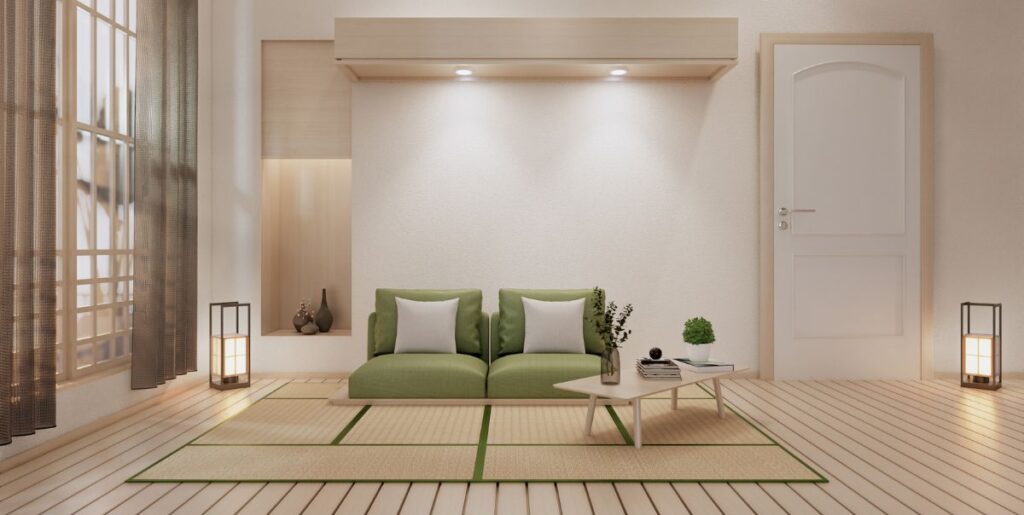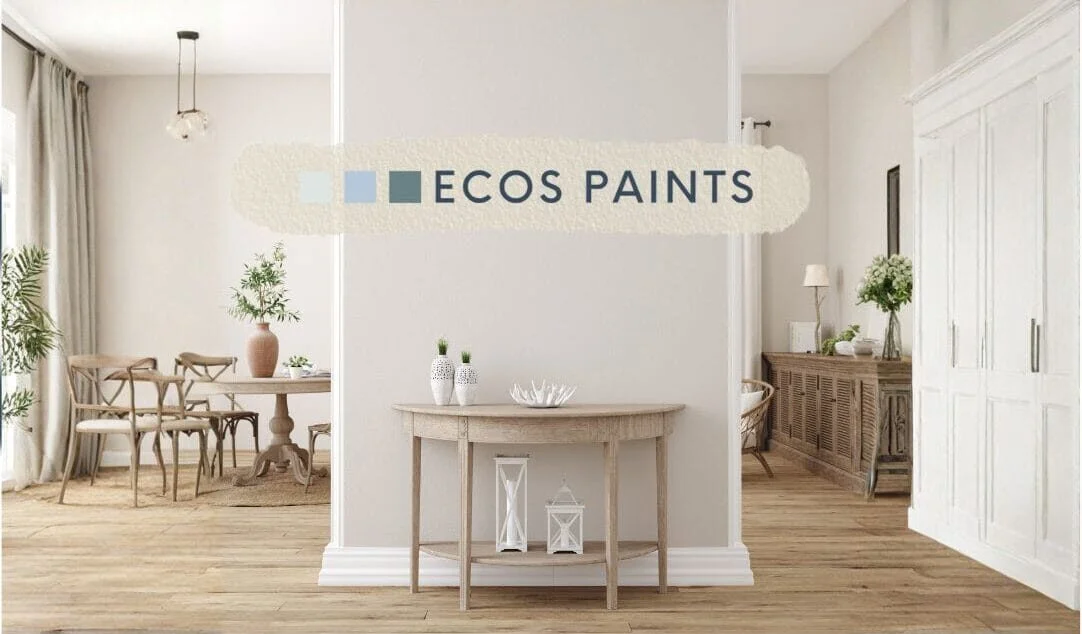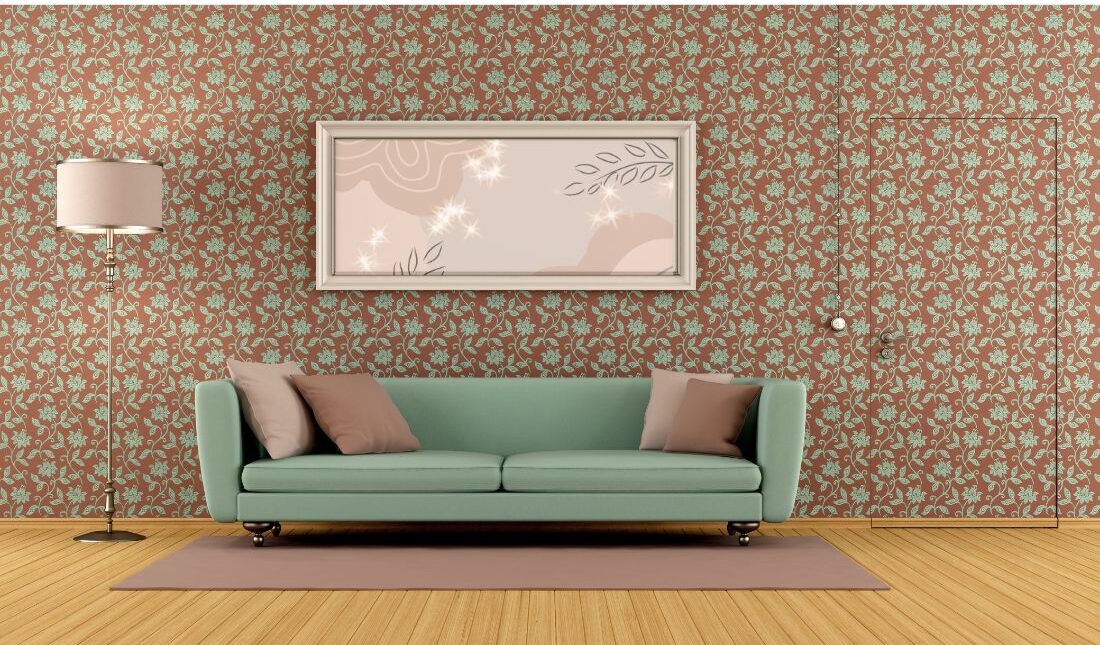Carpets and area rugs not only enhance the decor of a room but also absorb sound, improve acoustics, and increase comfort. They provide a soft surface and reduce the risk of slips and falls, making them a great choice for families.
However, it’s crucial to be aware of the materials and chemicals used in these products, as they can have negative effects on both human health and the environment.
Learn what to look out for and Brands that offer low or nontoxic, eco-friendly carpets and rugs options below
(For a curated selection of eco-conscious brands offering cleaner & safer products, we invite you to explore our shop page.)
Each brand we share is carefully selected to support your journey toward healthier living spaces. Through our affiliate links, you can easily access products, allowing us to earn a small commission at no extra cost to you.
Materials Used to Make Carpets and Rugs and their impact
Carpets and rugs are crafted from a variety of fibers, each with distinct characteristics and benefits. Understanding these materials can help you make an informed choices when selecting them. For more detailed information, visit “How To Pick The Right Carpet For Healthy Indoor Environment”.
Natural Fibers:
- Wool: Fire-resistant, stain-resistant, and comfortable, but requires care to prevent mold.
- Sisal: Durable, ideal for high-traffic areas, but coarse and needs professional cleaning.
- Seagrass: Stain-resistant and durable, great for rustic/coastal decor, but may fade in sunlight.
- Jute: Affordable, adds a warm color, but can be damaged by moisture and stains.
- Coir: Water-resistant, durable, perfect for high-traffic areas, but may shed fibers over time.
Synthetic Fibers:
- Nylon: Durable, stain-resistant, easy to maintain, ideal for high-traffic areas, but may accumulate static.
- Polyester: Affordable, stain-resistant, but less durable; good for short-term or budget spaces.
- Polypropylene (Olefin): Low-cost, moisture-resistant, but lower-quality grades may emit higher VOCs.
- Triexta: Superior stain resistance and durability, more expensive, but outperforms many synthetic options.
- Acrylic: Affordable, stain-resistant, low-maintenance, but wears down faster than nylon.
Chemical Concerns in Carpets and Rugs
While carpets provide comfort and beauty, they may also harbor chemicals that can negatively affect your health. Here are some common substances to watch out for:
- Formaldehyde: Found in adhesives and backing, it can irritate your eyes, nose, and throat.
- VOCs: Released by new carpets, these chemicals contribute to indoor air pollution and can cause headaches and respiratory issues.
- Pesticides: Used in manufacturing, they can remain in carpets and pose health risks.
- Phthalates: Found in synthetic carpet backing, linked to hormone disruption and respiratory problems.
- PFCs: Used in stain-resistant treatments, these chemicals can lead to long-term health concerns.
Short-Term vs. Long-Term Effects of Carpet Chemicals
While the immediate effects of carpet chemicals may be uncomfortable (e.g., headaches or respiratory issues), the long-term effects are more concerning. Chemicals like formaldehyde, PFCs, and phthalates can lead to serious health risks, including cancer, developmental issues, and hormonal disruptions. Here is a look at other chemicals found in our indoor environments.
Top Brands for Low- or Non-Toxic Carpets & Area Rugs
Certifications & Labels | OEKO-TEX, GOTS Certified, FSC Certified. Sustainable. Organic
Best For | Organic, eco-friendly rugs
Products | Rugs
Unique Features | Organic Weave Shop specializes in GOTS-certified organic rugs made from natural, non-toxic materials, ensuring a healthy home environment. Their rugs are crafted from organic cotton and FSC-certified materials, providing a sustainable and eco-friendly option.
Known for their softness and durability, these rugs combine environmental responsibility with high-quality craftsmanship, making them a top choice for eco-conscious consumers.
Price | Mid-range, $35+ per item
Certifications & Labels | GoodWeave Certified · Made from 100% recycled plastic
Best Seller | Fab Habitat Outdoor Rug
Products | Outdoor rugs · Indoor rugs · Doormats · Pillows · Throws · Storage baskets
Unique Features | Fab Habitat’s outdoor rugs are crafted from 100% premium recycled plastic tubes, tightly woven to create durable, waterproof, and fade-resistant rugs. They’re perfect for patios, decks, camping trips, and RVs. These rugs are stain-resistant, easy to clean with a hose, and UV resistant for long-lasting colors. They’re also reversible, offering two equally beautiful patterns in one rug.
The rugs are rolled without folds or creases for an elegant look and come with elastic bands for easy storage. Sizes 4′ x 6′, 5′ x 8′, and 6′ x 9′ include an eco-friendly carrier bag.
Price | Mid-range ($50–$100)
Labels & Certifications: OEKO-TEX Standard 100, Non-Toxic, Eco-Friendly, Sustainable.
Best For | Luxury, sustainable bedding and home textiles.
Products: Bedding, throws, decorative pillows, table linens, furniture and more
Unique Features | Fig Linens & Home is known for its commitment to sustainability and eco-friendly practices. They offer a range of products made from organic and sustainable materials, often emphasizing natural fibers and ethical production. While they may not have specific certifications for every product, their focus on sustainability and use of natural materials align with eco-conscious principles. It’s always a good idea to check specific product descriptions for detailed information on materials and certifications.
Price | Mid-range to luxury
Certifications: GoodWeave & Care & Fair, Solar-powered production.
Best Seller: Wool Flat Weave Crocodile Runner (that quirky croc graphic in bold colors).
Products:
Hand‑tufted wool rugs (with high‑low sculptural piles)
100% wool flat‑weave rugs in playful patterns
Machine‑washable organic cotton flat‑weave rugs
Custom and motif designs, plus bath mats and pillows.
Unique Features:
Imagine dropping an art piece on your floor — that’s Cold Picnic. Their rugs are inspired by vintage films, art, and national parks, with abstract designs in muted-yet-playful palettes. They’re not just visually striking but the wool feels soft and hearty, too.
They’re handcrafted in India under fair‑trade conditions, and the production runs on solar power, so you’re bringing home something socially responsible.
The cotton woven rugs are even machine‑washable. Plus, you can go custom with color, size, or pattern if you want something truly one‑of‑a‑kind.
Price:
From about $260 for smaller flat‑weave pieces (like the Crocodile Runner),
To $450–$1,700+ for hand‑tufted or large installation pieces.
Certifications: OEKO-TEX® Standard 100, ISO 9001
Best Seller: Eco-friendly, washable rugs and textiles for kids’ spaces
Products: Rugs (cotton and wool), cushions, wall hangings, blankets, home textiles, and green toys.
Unique Features: Lorena Canals specializes in washable rugs and home textiles made from natural, eco-friendly materials such as cotton and wool. Their products are designed with sustainability, practicality, and style in mind, making them popular for homes with children and pets.
The brand uses non-toxic dyes and follows zero-waste practices. Lorena Canals is the creator of the WASHABLE rug concept, including their patented WOOLABLE® range for machine-washable wool rug.
Price: Mid-range to high-end, starting from $89 for smaller items, with larger rugs priced at $200+
Labels & Certifications | Collection of non-toxic or low-toxic, certified, and or safer cleaner choices
Products | Area rugs, runners, indoor/outdoor rugs
Price | Mid-to-high range
Labels & Certifications | Ethically handmade in India, 100% recycled polyester (most rugs), no PFAS or chemical stain treatments explicitly disclosed (though certifications like OEKO-TEX® or GOTS are not mentioned).
Products | Area rugs, runners, indoor/outdoor rugs – available in various sizes and styles.
Best Seller | Performance Rugs
Unique Features | Burrow’s rugs are crafted from 100% recycled polyester, offering a sustainable option that’s durable and practical. The materials are marketed as stain-resistant but lack third-party certifications for chemical safety. They emphasize ethical hand-weaving practices in India and design versatility, offering styles from modern geometric patterns to traditional looks. Note: Some rugs (e.g., Empire & High Noon) use 100% natural, undyed wool, which may shed initially and require extra care.
Price | Mid-to-high range
Certifications: Over 50% recycled content in rug covers, rug pads made with 70%+ recycled materials. No PFAS or PFOA stain treatments. Trace amounts of methylene chloride in some products (Prop 65 warning in California).
Best For: Machine-washable rugs with kid- and pet-friendly functionality, available in a wide range of styles and textures
Products: Washable area rugs, doormats, outdoor rugs, rug pads — available in chenille, plush, shag, Re-Jute, and more
Unique Features: Known for its two-piece system: a washable rug cover paired with a non-slip pad — ideal for easy cleaning and homes with kids or pets. Most rugs are made with recycled materials, and the brand avoids harmful PFAS-based stain treatments.
However, some products contain trace amounts of methylene chloride, which carries a Prop 65 warning in California. Styles range from minimal to bold, with plenty of texture options like Re-Jute for a more natural feel. Rugs are made in the U.S. (California and Illinois), and the brand partners with One Tree Planted to support reforestation. Note: While convenient and partially sustainable, the polyurethane coating used for water-resistance may contribute to microplastic shedding.
Price: Mid-range, $100+
Certifications:GoodWeave®, OEKO-TEX® (select collections), amfori
Best For: Design-forward shoppers looking for ethically sourced rugs made with non-toxic materials and a wide range of styles
Products: Hand-tufted, hand-knotted, power-loomed, and flatweave rugs in wool, cotton, jute, recycled PET, polyester, and blends
Unique Features: Loloi combines artisan craftsmanship with broad design versatility, offering everything from vintage-inspired to bold modern styles. All handmade Indian rugs are GoodWeave® certified, ensuring no child or forced labor. OEKO-TEX® certified collections like Lyra, Greta, and Sorrento are tested for harmful chemicals, and select lines — such as the Ari and Cassian collections — feature recycled PET and GRS-certified materials.
PFAS/PFOA are explicitly avoided in some rugs (like Cassian and Lyra), but not all collections disclose stain treatment details, so it’s worth checking product specs if chemical-free is a priority. Loloi also offers machine-washable flatweaves and custom sizing through select retailers. With both natural and recycled options, they strike a balance between style, price, and mindful sourcing.
Price: Budget to mid-range ($100–$2,000+), with OEKO-TEX®/natural fiber rugs at higher price points (e.g., $500–$2,000 for wool/jute).
Armadillo & Co.
Certifications or Labels: Fair Trade Certified, Sustainable Practices
Best For: Handcrafted, eco-friendly rugs and textiles
Products: Rugs, textiles, home accessories
Unique Features: Armadillo & Co. specializes in luxury rugs that are handcrafted by artisans using sustainable materials such as wool, jute, and cotton. Their commitment to environmental and social sustainability is reflected in their Fair Trade certification and use of natural fibers. The brand’s rugs combine timeless design with eco-friendly practices, ensuring a high-quality, sustainable product. They focus on supporting artisan communities and minimizing their environmental footprint by using sustainable production methods and eco-conscious materials.
Price: High-end, $300+
Loomy
Certifications: OEKO-TEX® (all rugs)
Best For: Shoppers seeking ethically made, non-toxic rugs with bold, modern designs and eco-conscious materials
Products: Handwoven wool, jute, sisal, recycled PET, banana silk, cotton, hemp, and vegan rugs; available in flatweave, shag, performance, and outdoor styles
Unique Features: Loomy Home blends artisan craftsmanship with modern aesthetics, offering rugs made from natural and recycled materials. All rugs are OEKO-TEX® certified, ensuring they are free from harmful substances. Materials include ethically sourced New Zealand wool, recycled PET from plastic bottles, banana silk, and hemp. The brand emphasizes ethical production, partnering with artisans worldwide. Designs are bold and contemporary, with options for custom sizing. While PFAS-free status is not explicitly stated, the OEKO-TEX® certification suggests a commitment to chemical safety.
Price:
Mid-range to high ($300–$2,000+)
Certifications | OEKO-TEX® Certified · Made from 100% Recycled Polyester
Best Seller | Shell 7’10” x 10′ Washable Area Rug
Products | Machine-washable area rugs in various sizes and designs
Unique Features | Revival Rugs offers a collection of stylish, machine-washable area rugs crafted from 100% recycled polyester, ensuring both sustainability and durability.
Their rugs are OEKO-TEX® certified, guaranteeing they are free from harmful substances. The medium pile provides a soft, cushioned feel underfoot, making them perfect for high-traffic areas like living rooms and bedrooms. With a variety of modern designs and sizes, these rugs combine practicality with aesthetic appeal.
Price | Mid-range ($199–$589)
How to Choose safer Carpets and Area Rugs For healthy Interiors
- Look for Low-Toxicity Options:
Opt for carpets made from natural fibers or those labeled as low-emission. Certifications like GREENGUARD Gold, OEKO-TEX, or Green Label Plus ensure low chemical emissions. - Choose Non-Toxic Backing and Coatings:
Avoid carpets with formaldehyde, phthalates, or PFCs in their backing or stain-resistant treatments. Look for natural backing materials or those free from harmful chemicals. Wool naturally resists flame without chemical treatments. - Consider Washable Rugs:
Washable rugs are great for high-traffic or spill-prone areas. They’re easy to clean and often don’t require harsh chemical treatments. Look for machine-washable natural fiber rugs. - Opt for Natural Fiber Rugs:
Natural fibers like wool, cotton, jute, and hemp are durable and require fewer chemical treatments. They often resist stains and odors naturally, reducing the need for additives. - Air Purification and Regular Cleaning:
Maintain good indoor air quality by vacuuming regularly, using HEPA-filter air purifiers, and ensuring proper ventilation to reduce dust, allergens, and bacteria.
More Responsible Brands
Here are a few more brands that are genuinely committed to either low or non-toxic, eco-friendly, or sustainable practices:
Tumble
Certifications: OEKO-TEX Certified, Free from harmful chemicals
Sustainable
Health-Focused
Best For | Non-toxic, eco-friendly, pet- and kid-friendly rugs
Products | Washable rugs, non-slip pads, and spillproof options
Unique Features | Tumble Rugs are designed to be safe for homes with pets and children, offering durability with non-toxic materials. They are OEKO-TEX certified, meaning they are free from harmful chemicals like VOCs, phthalates, and formaldehyde. The rugs are also washable, spillproof, and hypoallergenic. Tumble Rugs focus on safety and comfort with a cushioned, non-slip pad for stability, making them ideal for high-traffic areas and family homes.
Price | Mid-range, starting around $150
Point Of Alignment
For a healthy, stylish living space, it’s important to choose carpets and rugs that not only look great but also contribute to a clean, toxin-free environment. Regular maintenance and selecting non-toxic materials can go a long way in improving your indoor air quality and overall well-being.





